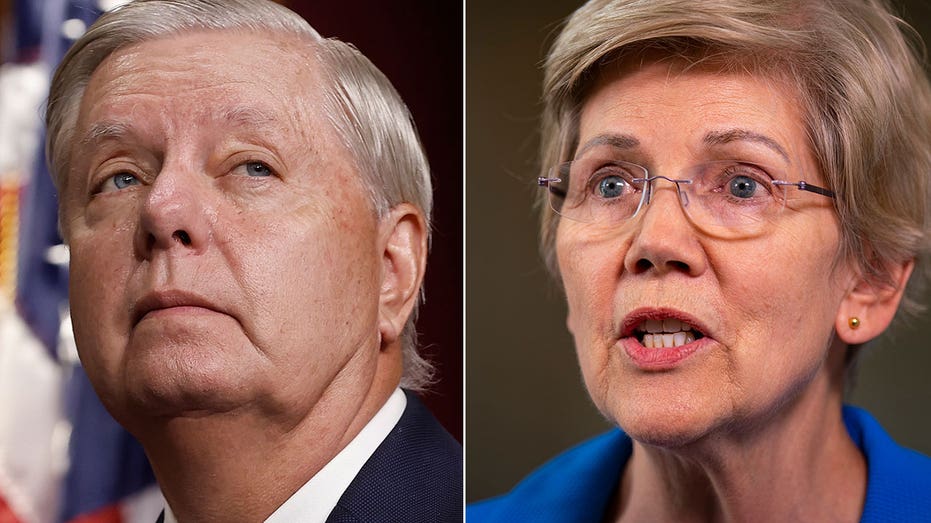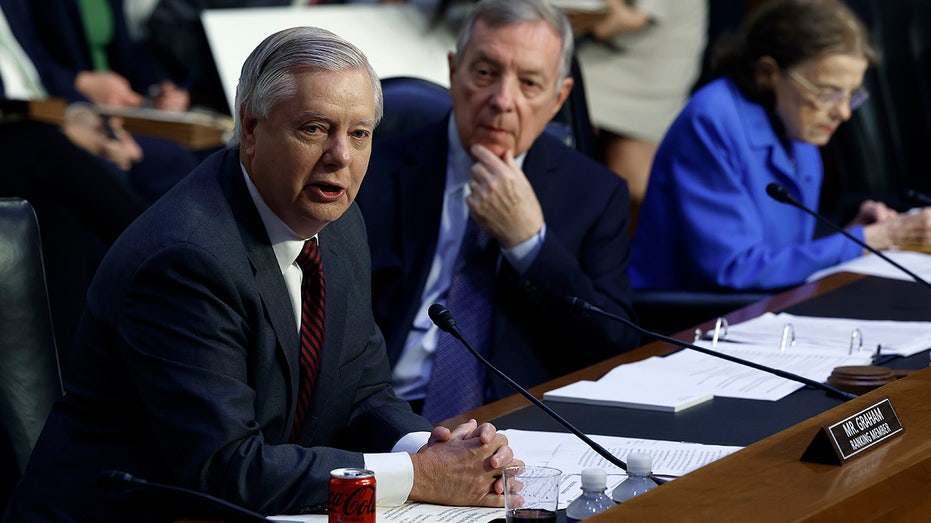Warren, Graham introduce bill to establish new federal regulatory commission to police Big Tech
Senators say bipartisan bill would create 'an independent, bipartisan regulator' of Big Tech
Missouri AG fighting for 'wall of separation' between Big Tech, federal government
Missouri Attorney General Andrew Bailey explains his concerns about free speech and Mark Zuckerberg's consolidation of power with the creation of Threads.
Sens. Elizabeth Warren, D-Mass., and Lindsey Graham, R-S.C., introduced legislation Thursday to establish a new federal regulatory commission made up of presidential nominees to "rein in Big Tech."
The bill, dubbed the Digital Consumer Protection Commission Act of 2023, seeks to amend the 1914 antitrust law known as the Clayton Act to create "an independent, bipartisan regulator charged with policing the biggest tech platforms, like Facebook, Google, and Amazon, to protect consumers, promote competition, secure Americans’ privacy, guard national security, and prevent harm online."
The legislation would "empower the commission, along with the Federal Trade Commission and Department of Justice, to enforce violations of the law." Under the bill, dominant digital platforms would risk losing their license to operate if they repeatedly violate the law.
"For too long, giant tech companies have exploited consumers’ data, invaded Americans’ privacy, threatened our national security, and stomped out competition in our economy," Warren said in a statement. "This bipartisan bill would create a new tech regulator and makes clear that reining in Big Tech platforms is a top priority on both sides of the aisle."

Sens. Lindsey Graham, R-S.C., and Elizabeth Warren, D-Mass., have teamed up on a bill aimed at reining in Big Tech. (Getty Images / Getty Images)
Warren’s office noted that President Biden, during his State of the Union address in February, had called for the passage of bipartisan legislation to "stop Big Tech from collecting personal data on kids and teenagers online, ban targeted advertising to children, and impose stricter limits on the personal data these companies collect on all of us."
"For years I have been trying to find ways to empower consumers against Big Tech," Graham added Thursday. "I have heard too many stories from families who feel helpless in the face of Big Tech. Stories about children being bullied to the point of committing suicide. Human trafficking. Exploitation of minors. All the while the social media platforms look the other way. Today, we take the first step and provide consumers with the tools they need to begin leveling the playing field."
| Ticker | Security | Last | Change | Change % |
|---|---|---|---|---|
| META | META PLATFORMS INC. | 644.78 | +1.56 | +0.24% |
| GOOG | ALPHABET INC. | 303.56 | -0.38 | -0.13% |
| NO DATA AVAILABLE | - | - | - | |
| AMZN | AMAZON.COM INC. | 204.86 | +0.07 | +0.03% |
"A regulatory commission will give consumers a voice against Big Tech and the power to punish them when appropriate," he said. "The creation of a regulatory commission to oversee Big Tech is the first step in a long journey to protect American consumers from the massive power these companies currently wield."

Republicans have accused the FTC of harassing Twitter since Elon Musk took over the company, now X Corp., last October. (Jaap Arriens / NurPhoto via Getty Images / File / Getty Images)
The independent regulatory commission would be composed of five commissioners appointed by the president and approved by the Senate.
The commissioners would be appointed for five-year terms, and not more than three commissioners would be from the same political party. The bill states no commissioner or person employed by the commission may be financially interested in any social media platform or company that operates social media platforms or derive a significant portion of their income from ownership of stocks, bonds or securities of any platform operator.
House Republicans, meanwhile, have repeatedly accused the Biden administration of censorship, pointing to the July 4 federal court ruling in Louisiana that deemed multiple agencies within the executive branch, including the FBI, Department of Justice and Department of Homeland Security, colluded with social media companies to quash First Amendment free speech of mostly conservative Americans.

Sen. Lindsey Graham has teamed up with Democrat Sen. Elizabeth Warren to establish a new federal commission focused on reining in Big Tech. (Chip Somodevilla / Getty Images / File / Getty Images)
House Judiciary Committee Chair Rep. Jim Jordan, R-Ohio, recently railed against Federal Trade Commission Chair Lina Khan on what he perceived as the government’s "obsession" with Elon Musk since he took over Twitter last October.
Twitter, meanwhile, has indicated in federal court that the company intends to subpoena Warren, a member of the Senate Banking, Housing, and Urban Affairs Committee, for communications that allegedly pressured the Securities and Exchange Commission to investigate another Musk company, Tesla. Twitter, now "X," is seeking an end to a government oversight consent decree dating back to before Musk took the helm.
A spokesperson for Graham told Fox News Digital the new oversight bill introduced Thursday "has nothing to do with Twitter" and that the Republican senator has been working with Warren’s office for months on the legislative effort. Warren's office did not immediately return a request for comment.




















